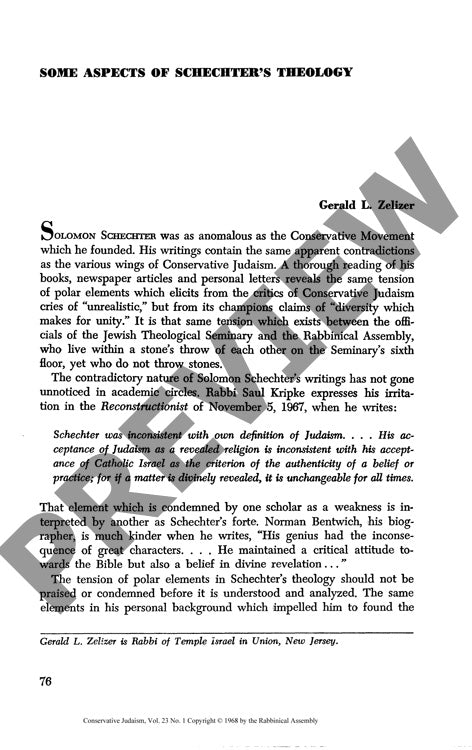Some Aspects of Schechters Theology
Couldn't load pickup availability
Solomon Schechter's seemingly contradictory theological positions - embracing both critical biblical scholarship and divine revelation - embodied deliberate philosophical tensions rather than confused thinking. His complex theological framework emerged from the intersection of traditional Jewish observance and liberal religious thought, defining the early character of Conservative Judaism. Through analysis of Schechter's books, articles, and personal correspondence, particularly his comparative examination of Maimonides' Thirteen Principles and Crescas' alternative formulation, this investigation reveals how his background in Romanian Hasidism and role as Seminary director shaped his carefully calibrated public positions. Close textual analysis of his treatment of Jewish dogma and evolving views on Jewish mission demonstrates that Schechter intentionally maintained intellectual positions that some scholars criticized as inconsistent. Yet these very tensions between traditional practice and modern thought became foundational to Conservative Judaism's distinctive approach, explaining the persistent dynamic between the movement's institutional components. Schechter's theological complexity ultimately reflects Conservative Judaism's core methodology of negotiating between Jewish tradition and contemporary intellectual currents.

More Information
-
Physical Description
-
Publication Information
Published 1968
ISBN
-
Publication Credits
Gerald Zelizer

